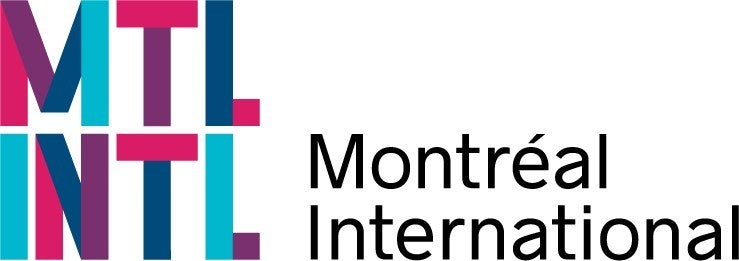
The economy of Montréal has proven highly resilient against the worst effects of Covid-19, while the city’s financial conditions continue to attract international businesses such as tech companies from California. A measure of Montréal’s resilience is that the city had an unemployment rate of 4.8% in November this year, which is the lowest for 15 years.
In 2020, there was an average global decline in foreign direct investment (FDI) of 35%, according to figures from the UN Conference on Trade and Development (UNCTAD). Yet Montréal fared considerably better for the same year.
Montréal International is a non-profit organisation funded by national and regional governments in Canada, set up to attract foreign investors, talent and international organisations to the area. The local economic development agency supported 90 FDI projects worth C$2.233bn during 2020. This investment created or maintained 8,192 high-quality jobs, with an average salary of C$83,976. Of these investments, 49.2% came from Europe, the Americas accounted for 43.9%, and the remaining 6.9% was from Asia and Australia.
In addition, while Montréal’s overall total of FDI was down 15% from 2019, this was still 20% higher than the global average decline and remains impressive during the peak of Covid-19 in 2020, when much of the world economy ground to a halt.
This year, sectors that have seen foreign investment include computer services, AI, software, transportation logistics, life sciences and health technologies, as well as finance – and the growth of these sectors is no coincidence. Montréal International identified the industries with the biggest potential for future growth and then devised ways to attract them.
Stéphane Paquet is Montréal International’s president and CEO. He believes the city is attracting such high levels of direct foreign investment because of three main reasons.
“The three factors are the market access, the costs and the talent,” he says.
Meanwhile, in the first half of 2021, more than 50% of the US projects Montréal International supported were businesses from California. This trend began a few years ago and is known as the Montréal-California corridor. Major international tech companies to have set up or expanded offices in Montréal in recent years include Amazon Web Services, Facebook, Google and Microsoft.
Another part of Montréal’s appeal is connections with the world-renowned universities in Québec, where tech companies can access the brightest minds and future innovators.
“Since 2016, we have assisted no less than 45 businesses from California, especially from the valley,” explains Paquet. “They were either in Montréal with a small presence and wanted to expand or were greenfield companies that weren’t in Montréal but were looking for a place where the market would be strong, where the cost structure would be much lower than in the valley and where there is talent, including a large pool of university and college students that can provide their insight by working part-time during their studies.”
Additionally, many of Montréal’s booming sectors are where most of the work is computer-based. As this allows employees greater freedom as to where they can work, it minimises operations disruption from potential office closures should there be an increase in Covid-19 restrictions.
Cost comparisons
Cost is a key factor that has tempted tech businesses from California to set up or expand offices in Montréal. On average, it is less expensive to run a business in Montréal compared with other major cities in North America. The city has an average 26% cost advantage for high-tech sectors over other cities, according to fDi Benchmark figures from 2019.
Montréal’s corporate tax rate of 26.5% is lower than the 27.98% charged in California, and office rental prices are significantly less expensive in Montréal, where the rent per square foot per year averages C$30.30, compared with C$80.14 in San Francisco.
Montréal’s clean hydroelectricity is also a major incentive to businesses looking to cut their carbon footprint, while electricity bills are the lowest for large power users in North America, with prices for cents per kilowatt-hour at C$5.20 versus C$21.15 in California. Plus, 99% of the province’s energy comes from renewable sources. Google recently quoted Québec’s hydroelectricity to explain its decision to build a new data centre in Beauharnois, a suburb of Montréal.
Furthermore, Montréal has the lowest salaries for tech jobs in North America, with an average annual wage of C$62,795. In contrast, the highest average tech salary is in San Francisco at C$144,370. In Montréal, the lower average salary is balanced out by cheaper living costs in terms of housing and childcare, plus universal healthcare in Canada reduces the burden on medical insurance costs.
Government support also plays a crucial role in the local economic environment, offering a range of sector-specific tax credits for eligible salaries and expenses. Savings of up to 43% are available for film and video production, 37.5% for multimedia production, 30% for e-business development and 24% for international financial centres. This is alongside a host of other options such as grants and interest-free loans for certain projects.
In addition, Canada is the only country in the world to have free trade agreements with all the countries in the G7, meaning access to major markets is a straightforward process. Montréal is also well-served by transport links, with a flight to New York taking just 90 minutes.
Yet, according to Paquet, the plan is not for Montréal to replace Silicon Valley as the world’s biggest tech hub but instead form its own distinct identity and path.
“I don’t see Montréal as a rival to Silicon Valley,” says Paquet. “You have people in Silicon Valley who will want to stay there, but at some point, these companies have to look at other places in the world where they will have access to great talent, where they will find great cost structures and where they will feel welcome. They can find all of this in Montréal.”
More resources on investing in Montréal:
- Find out how much you could save by investing in Greater Montréal
- Why choose Montréal
- Greater Montréal: Reasons to Invest


